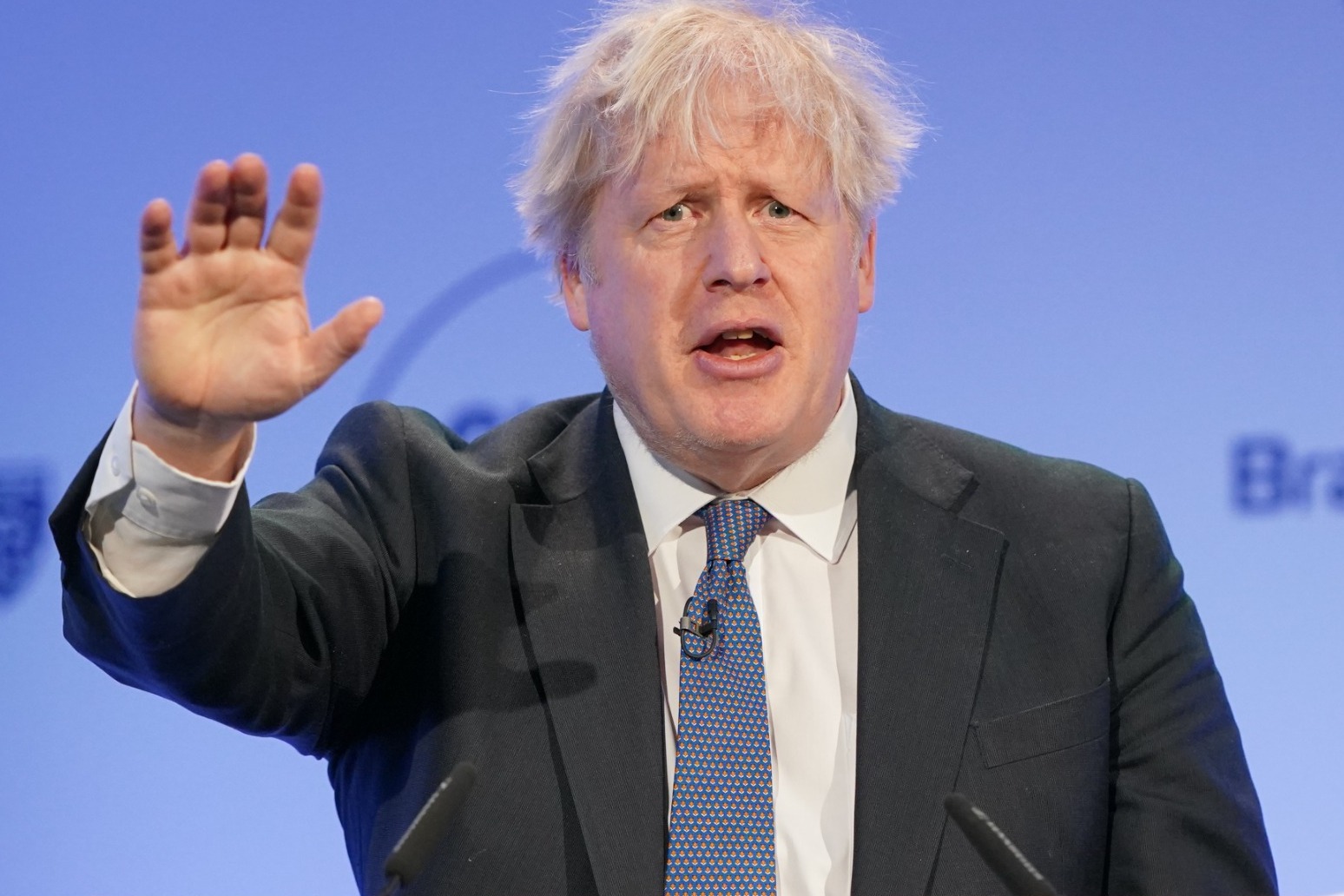
Johnson found to have committed ‘repeated contempts’ of Parliament
Boris Johnson committed “repeated contempts” of Parliament by deliberately misleading MPs with his partygate denials before being complicit in a campaign of abuse and intimidation, a cross-party investigation has found.
The Privileges Committee recommended a 90-day suspension which would have paved the way for a by-election for the former prime minister if he had not quit the Commons in anticipation.
Though his resignation means he will escape that punishment, the committee recommended that he should not receive the pass granting access to Parliament which is normally given to former MPs.
Mr Johnson hit out at what he called a “deranged conclusion”, accusing the Tory-majority group of MPs he has repeatedly sought to disparage of lying.
He called the committee led by Labour veteran Harriet Harman “beneath contempt” and claimed its 14-month investigation had delivered “what is intended to be the final knife-thrust in a protracted political assassination”.
They found he had committed a “serious contempt” for “deliberately misleading” MPs by insisting all rules had been followed in Downing Street despite lockdown-breaching parties.
The MPs had provisionally agreed a suspension long enough to potentially trigger a by-election before he resigned in protest at the findings, attacking the committee as a “kangaroo court”.
But they said he committed further contempts for undermining the democratic processes of the Commons and being “complicit in the campaign of abuse and attempted intimidation of the committee”.
The committee said in the report: “We came to the view that some of Mr Johnson’s denials and explanations were so disingenuous that they were by their very nature deliberate attempts to mislead the committee and the House, while others demonstrated deliberation because of the frequency with which he closed his mind to the truth.”
It found he also breached confidentiality requirements in his resignation statement by criticising the committee’s provisional findings.
“Mr Johnson’s conduct in making this statement is in itself a very serious contempt,” the report said.
The committee said his resignation last Friday means it is “impossible” for the recommended suspension to be imposed.
It far exceeded the 10-day threshold which, if approved by the wider House of Commons, could have led to a recall petition in his Uxbridge and South Ruislip constituency.
Attacking the committee’s findings, Mr Johnson said: “This is rubbish. It is a lie.
“This is a dreadful day for MPs and for democracy.”
The committee, comprised of four Tories, two Labour MPs, and one from the SNP, found he misled the House in five ways with his Covid-19 assurances and had been “disingenuous” with their investigation multiple times.
They found many aspects of his defence were “not credible”, allowing them to conclude he “intended to mislead” MPs.
The committee dismissed Mr Johnson’s argument that mid-pandemic staff leaving dos were essential to maintain staff morale, noting they attracted police fines while the rules would have been clear to him.
“A workplace ‘thank you’, leaving drink, birthday celebration or motivational event is obviously neither essential or reasonably necessary,” the MPs wrote.
“That belief, which he continues to assert, has no reasonable basis in the rules or on the facts.”
They criticised his persistence in arguing a “unsustainable interpretation” of the rules to argue events were permissible as being “disingenuous and a retrospective contrivance to mislead”.
The MPs considered whether it should have recommended expelling Mr Johnson from the Commons.
During discussion of the report’s final findings, the SNP’s Allan Dorans and Labour’s Yvonne Fovargue backed the stronger sanction.
But the amendment was opposed by the Conservative members: Sir Charles Walker, Andy Carter, Alberto Costa and Sir Bernard Jenkin, whom Mr Johnson has urged to resign over his own alleged rule-breach.
Published: by Radio NewsHub